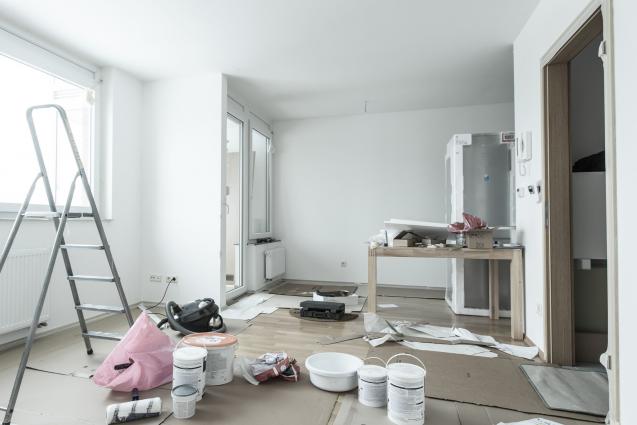
How Does NDIS Housing Work?
By White Chalk Road|June 27, 2024
The National Disability Insurance Scheme (NDIS) in Australia plays a pivotal role in providing support and services to individuals with disabilities, including specialised housing options tailored to their needs.
Understanding how NDIS housing works is essential for participants, their families, and caregivers to navigate the complexities of accessing suitable accommodation and support under the scheme – and to make informed decisions.
What is NDIS Housing?
NDIS housing refers to accommodation solutions funded and supported by the NDIS specifically designed to meet the housing needs of individuals with disabilities.
It aims to provide safe, accessible, and supportive living environments that promote independence and enhance the quality of life for participants.
How Does NDIS Housing Work?
1. Eligibility and Assessment:
The process of accessing NDIS housing begins with an eligibility assessment under the NDIS. Individuals must meet specific criteria related to their disability and housing needs, demonstrating that their current living arrangements are inadequate or unsuitable due to their disability-related requirements.
2. Specialist Disability Accommodation (SDA):
One key aspect of NDIS housing is Specialist Disability Accommodation (SDA). SDA refers to purpose-built or modified housing that enables individuals with significant functional impairments to live as independently as possible. This includes features such as wheelchair accessibility, sensory aids, and specialised support systems tailored to the individual's needs.
3. Funding and Support Coordination:
NDIS funding for housing is allocated based on the participant's assessed needs and goals outlined in their NDIS plan. Funding may cover the capital costs associated with acquiring, building, or modifying SDA properties, as well as ongoing maintenance and support costs.
4. Types of NDIS Housing:
There are various types of NDIS housing and these can include:
· Home Modifications: This involves making changes to a participant's existing home to improve accessibility and safety. These modifications may include installing ramps, handrails, accessible bathrooms, or other features that accommodate the participant's specific mobility or sensory needs. Home modifications aim to create a living environment that supports the participant's independence and enhances their quality of life by removing physical barriers.
5. Choice and Control:
Participants have the autonomy to choose the type of NDIS accommodation that best suits their preferences and needs. They can select from registered NDIS providers offering SDA or SIL services, ensuring that the accommodation and support services align with their individual goals and aspirations.
6. NDIS Quality Standards and Compliance:
All NDIS housing providers must adhere to stringent quality standards and regulations set by the NDIS Quality and Safeguarding Framework. This ensures that housing options meet the necessary safety, accessibility, and support requirements to safeguard the well-being of participants.
Key Benefits of NDIS Housing:
· Choice and Flexibility: Participants have the freedom to choose housing solutions that best meet their needs and preferences, empowering them to live in environments that support their individual goals and aspirations.
· Integrated Support Services: NDIS housing often integrates support services such as personal care, therapy, and community engagement programs, ensuring holistic support for participants' physical, social, and emotional well-being.
The Difference Between SDA and SIL
When it comes to NDIS housing, many people get confused by the various terminology. Most notably, many people are unser of the differences between Special Disability Accommodation (SDA) and Supported Independent Living (SIL) and how they relate to NDIS housing.
SDA refers to housing specifically designed or modified for people with high support needs due to their disability, focusing on the physical environment, whereas SIL refers to the daily support services.
SIL services aim to help individuals with disabilities live as independently as possible, focusing on assistance with physical tasks such as personal care (e.g. bathing and dressing), daily household chores (e.g. cooking, cleaning and laundry), support with managing finances, and assistance with community access or social activities.
SIL services also include mental health support, which covers counselling and therapy sessions, emotional support, and help with coping strategies. These services aim to enhance emotional well-being, improve daily functioning, and support individuals in managing their mental health challenges. Mental health support within SIL can be provided by trained professionals (such as clinical psychologists), or support workers who work closely with the person to address their specific needs.
The key difference is that SDA addresses the physical accommodation, while SIL focuses on the support services within that accommodation.
How NDIS Housing Works: A Conclusion
NDIS housing plays a crucial role in providing individuals with disabilities the opportunity to live independently and comfortably in environments that meet their specific needs.
By understanding how NDIS housing works and navigating the process of eligibility assessment, funding allocation, and choice of accommodation, participants and their families can access the support and services necessary to enhance their quality of life.
The NDIS's commitment to providing accessible and supportive housing reflects its mission to empower individuals with disabilities and promote their inclusion and participation in the community.
For more information on NDIS housing options and how they can benefit individuals with disabilities, consult with a registered NDIS provider or visit the official NDIS website for comprehensive guidance and resources.
Understanding how NDIS housing works is essential for participants, their families, and caregivers to navigate the complexities of accessing suitable accommodation and support under the scheme – and to make informed decisions.
What is NDIS Housing?
NDIS housing refers to accommodation solutions funded and supported by the NDIS specifically designed to meet the housing needs of individuals with disabilities.
It aims to provide safe, accessible, and supportive living environments that promote independence and enhance the quality of life for participants.
How Does NDIS Housing Work?
1. Eligibility and Assessment:
The process of accessing NDIS housing begins with an eligibility assessment under the NDIS. Individuals must meet specific criteria related to their disability and housing needs, demonstrating that their current living arrangements are inadequate or unsuitable due to their disability-related requirements.
2. Specialist Disability Accommodation (SDA):
One key aspect of NDIS housing is Specialist Disability Accommodation (SDA). SDA refers to purpose-built or modified housing that enables individuals with significant functional impairments to live as independently as possible. This includes features such as wheelchair accessibility, sensory aids, and specialised support systems tailored to the individual's needs.
3. Funding and Support Coordination:
NDIS funding for housing is allocated based on the participant's assessed needs and goals outlined in their NDIS plan. Funding may cover the capital costs associated with acquiring, building, or modifying SDA properties, as well as ongoing maintenance and support costs.
4. Types of NDIS Housing:
There are various types of NDIS housing and these can include:
- SDA Apartments or Houses: These are specifically designed or modified apartment developments that meet high physical accessibility standards and include features to support individuals with disabilities in their daily living activities.
- Group Homes: These are shared living arrangements where individuals with disabilities live together in a supportive environment. These homes are staffed to provide varying levels of support depending on the needs of the residents.
· Home Modifications: This involves making changes to a participant's existing home to improve accessibility and safety. These modifications may include installing ramps, handrails, accessible bathrooms, or other features that accommodate the participant's specific mobility or sensory needs. Home modifications aim to create a living environment that supports the participant's independence and enhances their quality of life by removing physical barriers.
- Supported Independent Living (SIL): SIL refers to support services provided to individuals with disabilities living in their own homes or in shared accommodation settings.
5. Choice and Control:
Participants have the autonomy to choose the type of NDIS accommodation that best suits their preferences and needs. They can select from registered NDIS providers offering SDA or SIL services, ensuring that the accommodation and support services align with their individual goals and aspirations.
6. NDIS Quality Standards and Compliance:
All NDIS housing providers must adhere to stringent quality standards and regulations set by the NDIS Quality and Safeguarding Framework. This ensures that housing options meet the necessary safety, accessibility, and support requirements to safeguard the well-being of participants.
Key Benefits of NDIS Housing:
- Promotes Independence: NDIS housing options are designed to promote independence and enhance the quality of life for individuals with disabilities, by providing tailored support and accessible living environments.
· Choice and Flexibility: Participants have the freedom to choose housing solutions that best meet their needs and preferences, empowering them to live in environments that support their individual goals and aspirations.
· Integrated Support Services: NDIS housing often integrates support services such as personal care, therapy, and community engagement programs, ensuring holistic support for participants' physical, social, and emotional well-being.
The Difference Between SDA and SIL
When it comes to NDIS housing, many people get confused by the various terminology. Most notably, many people are unser of the differences between Special Disability Accommodation (SDA) and Supported Independent Living (SIL) and how they relate to NDIS housing.
SDA refers to housing specifically designed or modified for people with high support needs due to their disability, focusing on the physical environment, whereas SIL refers to the daily support services.
SIL services aim to help individuals with disabilities live as independently as possible, focusing on assistance with physical tasks such as personal care (e.g. bathing and dressing), daily household chores (e.g. cooking, cleaning and laundry), support with managing finances, and assistance with community access or social activities.
SIL services also include mental health support, which covers counselling and therapy sessions, emotional support, and help with coping strategies. These services aim to enhance emotional well-being, improve daily functioning, and support individuals in managing their mental health challenges. Mental health support within SIL can be provided by trained professionals (such as clinical psychologists), or support workers who work closely with the person to address their specific needs.
The key difference is that SDA addresses the physical accommodation, while SIL focuses on the support services within that accommodation.
How NDIS Housing Works: A Conclusion
NDIS housing plays a crucial role in providing individuals with disabilities the opportunity to live independently and comfortably in environments that meet their specific needs.
By understanding how NDIS housing works and navigating the process of eligibility assessment, funding allocation, and choice of accommodation, participants and their families can access the support and services necessary to enhance their quality of life.
The NDIS's commitment to providing accessible and supportive housing reflects its mission to empower individuals with disabilities and promote their inclusion and participation in the community.
For more information on NDIS housing options and how they can benefit individuals with disabilities, consult with a registered NDIS provider or visit the official NDIS website for comprehensive guidance and resources.



